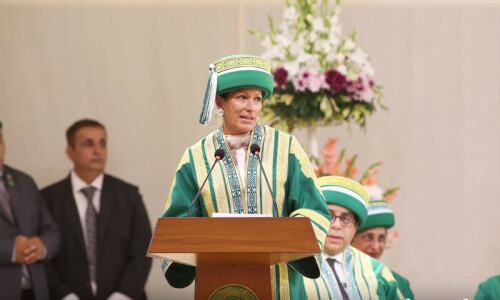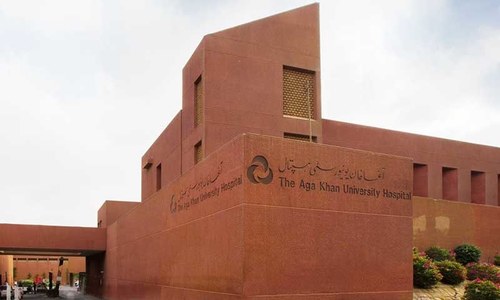KARACHI: The Aga Khan University Hospital (AKUH) has expanded its newborn screening process to include inherited metabolic disorders, marking the introduction of a powerful lab tool for the first time in a clinical setting in Pakistan.
According to experts, metabolic disorders refer to abnormal chemical reactions in the body that can disrupt a baby’s intellectual or physical growth and potential. Elsewhere in the developed world, newborn babies are put through mandatory screening for such disorders, but this has not been the case in Pakistan until now.
AKUH has already been screening newborn babies for two non-inherited disorders, but experts have identified the need for investigating inherited disorders as well. If inherited metabolic disorders are not treated, most of them result in death.
“From August 14, we have started screening for 12 inherited metabolic disorders,” said associate professor Dr Bushra Afroze, a clinical and biochemical geneticist who led the teams.
This was in addition to the testing for hearing impairment and congenital heart disease, and this development ramps up the potential for AKUH researchers to assess the prevalence of disorders and disease burden in Pakistan, she added.
According to the chair of Paediatrics and Child Health, Dr Fyezah Jehan, the decision to work on newborn screening by clinical, research, and laboratory teams began back in February.
“Collectively, we made a decision to do what was morally, legally, and ethically right,” she said. “We always want to provide hope rather than hopelessness (to families).” She thanked Dr Lena Jafri, Dr Salman Kirmani, Dr Azeema Jamil, Dr Ghulam Zainab, and their colleagues for pushing this innovation through.
According to Dr Farhat Abbas, the AKUH chief executive officer and renowned urologist, the ease of use of this test as well as its innovation will greatly aid in early detection and potentially save lives.
The blood sample for the test is collected with the help of a simple heel-prick procedure, and the analysis is done through the Liquid Chromatograph Triple Quadrupole Mass Spectrometer (LC-MS/MS), a powerful analytical technique.
“It identifies the chemical properties of metabolite molecules in the blood, and this is the first time LC-MS/MS is being done in a clinical setting in Pakistan. It is recommended that parents speak to their doctor first to evaluate the reason for choosing this newborn screening and get it done in a hospital setting where the baby is born. It takes five days to get the result,” says a press release.
Published in Dawn, August 17th, 2023

































